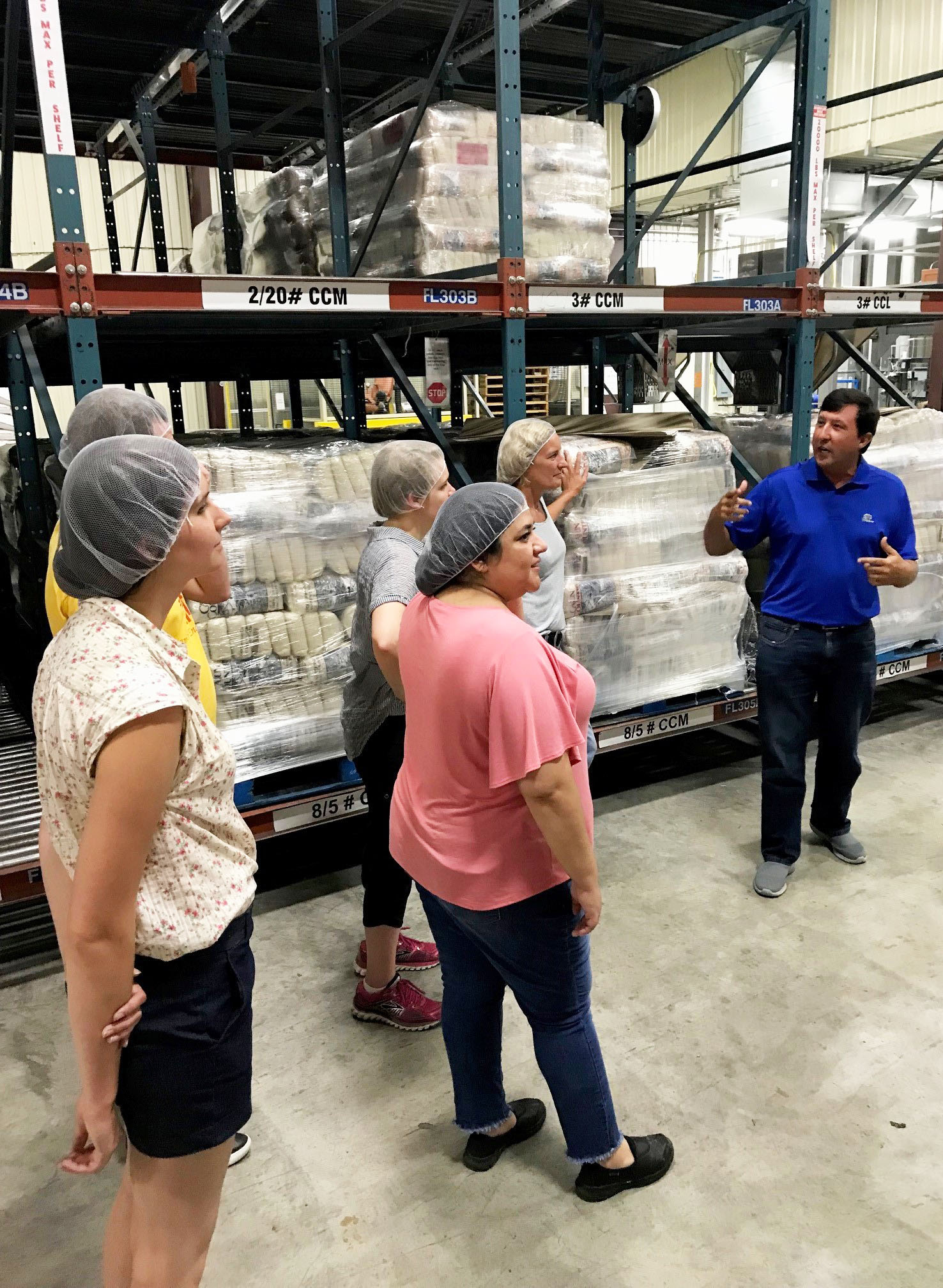 Robbie Trahan (far right) leads a tour at his family's operation, Falcon Rice Mill, in Crowley, Louisiana
Robbie Trahan (far right) leads a tour at his family's operation, Falcon Rice Mill, in Crowley, Louisiana
Mar 04, 2024
ARLINGTON, VA – Ever since rice pretenders – rice-shaped processed vegetables – emerged on the scene, the U.S. rice industry has been trying to set the record straight with consumers, retailers, manufacturers, policymakers, and lawmakers to avoid marketplace confusion.
“We’ve said from the beginning, ‘rice is a grain, not a shape,’” said Robbie Trahan, a Louisiana rice miller and chair of the USA Rice Domestic Promotion Committee. “If someone wants to eat cauliflower crumbles, that’s fine. But don’t call it ‘rice.’ It isn’t.”
Trahan said the industry sought a “standard of identity” (SOI) from the U.S. Food & Drug Administration that would quite deliberately define what is and what is not rice. The agency, which has SOIs for a host of foods from cherry pie to white bread, did not act, even though there is an international standard from the United Nations and World Health Organization that says: “Rice is whole and broken kernels obtained from the species Oryza sativa L.”
Trahan said in 2018 USA Rice reached out to manufacturers of the products asking them to refer to their products as “riced” not “rice.”
“Rice is a grain from the Oryza sativa family,” Trahan explained. “If something, like cauliflower or broccoli, is riced, it’s chopped up or processed, pushed through a plate or screen. These should be called ‘riced cauliflower’ or ‘riced broccoli.’”
Trahan said frozen food giants Bird’s Eye and Green Giant did label their products correctly, but others ignored the industry requests for clarity. USA Rice also requested retailers move the pretender products out of the rice aisle and into the produce or legume aisles, since that’s what they are actually made of. But retailers, who generally accept slotting fees to display products prominently, didn’t reclassify the offending products.
“We appreciate the companies that named their products accurately to avoid consumer confusion,” said Michael Klein, USA Rice vice president of domestic promotion. “As for the retailers, we understand that they were likely under contract to display the pretenders next to our real rice. We just wish the pretenders didn’t try to confuse consumers into believing that they are making a choice among real rice products.”
USA Rice did more than wish.
The group set its sights on one particular pretender brand that puts the word “rice “ right in its name: RightRice. And, it took action.
“The product calling itself ‘RightRice,’ from Planting Hope Brands, marketed itself as ‘rice made from vegetables,’” Klein said. “There’s no such thing. Vegetables are vegetables and rice is rice. Also, by calling their product ‘right’ they are implying real rice is ‘wrong.’ The upshot is that consumers were being at best confused, at worst deceived.”
Klein said USA Rice was concerned that the pretender brand’s trademark itself was deceptive. “We couldn’t let this misleading name stand and enjoy federal trademark protection,” he said.
USA Rice filed a petition with the U.S. Patent & Trademark Office’s Trademark Trial and Appeal Board (TTAB) to cancel the trademark registration on the grounds that it was deceptively misdescriptive and deceptive.
In late November, the TTAB granted USA Rice’s petition, canceling the trademark registration. Among other things, that means that RightRice can no longer can use the “R” in a circle symbol. Planting Hope Brands will have to change its packaging and marketing accordingly.
“To be clear, we believe there is room in the shopping cart for both products, but consumers should be able to make well-informed, deliberate purchases and not be tricked into buying something they did not intend,” Trahan said. “The federal system of trademark registration should not be used to bolster the trademark rights of those who mislead consumers with their marks.”